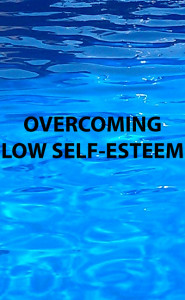Overcoming Low Self-Esteem
There can be many reasons why some people have low self-esteem. If you want to overcome your low self esteem it’s a good idea to understand what causes it. Once you understand where it comes from, then you can then work on correcting it.
What can cause low self-esteem?
Not meeting up to societal standards. There are many standards which are determined by society which the majority of people don’t question and blindly follow. We are judged by these standards, and if we don’t meet these standards you will be judged as having low status. Low status means we have a low ranking in society which can easily influence our own self-worth and self-esteem.
Not living up to other peoples standards such as friends and family. This is very similar to the above mentioned societal standards as friends and family will be vulnerable to the influences of society just as anyone. However, friends and family will apply more direct pressure to you, such as the pressure applied to you to follow in your parents footsteps, or to please your friends in their beliefs, egos or ambitions.
Lack of attention, parental neglect. If we didn’t receive enough attention in our early development stages/childhood this can affect and reduce our self-image. Unconsciously we may feel unworthy due to this lack of attention.
This may bare absolutely no reflection on the person being neglected, with the fault lying solely on the person or parent not giving the attention. Yet it could be taken personally which could have a long lasting effect.
Being a victim of bullying, physical and mental. When we are bullied it can have dramatic effects on our self-esteem. Unconsciously our mind may believe that we deserve to be bullied.
Bullies themselves often suffer from deep routed low self-image issues, their strategy to counter this is to bully others, giving them a short term boost in their esteem. Again, often it’s not the fault of the one being bullied.
Not being able to relate to the majority of people. This can be due to introversion, or being very high or low on certain temperamental/personality traits. It could also be down to lacking social skills, being overly defensive or some form of personality disorder.
Past traumatic experiences. Depending on the traumatic experience these can cause a whole host of different lasting effects, including low self-esteem.
A general negative opinion of one self. There are many reasons for this, including all of the above. There could also be other factors such as brain chemistry, various physical and psychological issues which effects our state of mind.
High in trait neuroticism. Neuroticism is a trait connected to emotional stability and negative emotions. There is a strong connection with those that are high on trait neuroticism and having low self-esteem. Neuroticism is one of the big five personality traits.
This can be a very complex issue with many causes. Some of these issues will require professional help. However, there are a few ideas below which could help with the less serious causes.
How to increase our self-esteem?
Knowledge and understanding of the causes can be a huge help in some instances. Understanding why some people do and say the things that they do can help with not taking things personally.
One of the major causes of low-esteem is a negative view/opinion of ourselves, this can simply be influenced by the views of other people. If we allow them, these views from others can be used by us to judge ourselves. We assume these views and opinions are reality and they can be followed blindly without question.
However, the views of others are largely effected by personal experiences, unique ways of thinking, misunderstandings and societal pressures. You can overcome this by developing a strong identity which is not influenced so much by other people. Or in other words, decide for yourself what is good or bad, high or low value behaviour. Don’t be judged by the standards of others unless those standards are good and fair. This is how you can take control over your own self-esteem, rather than it being controlled by others and society.





